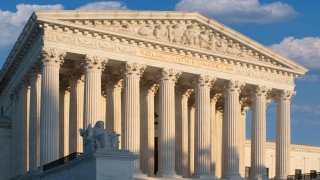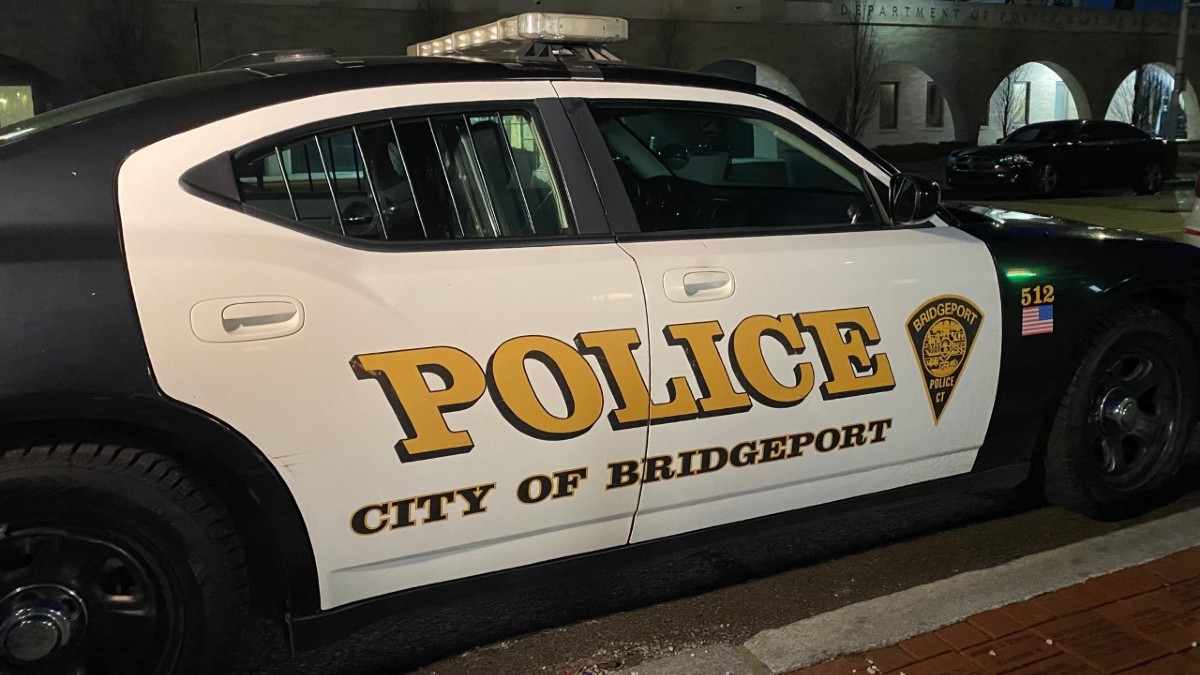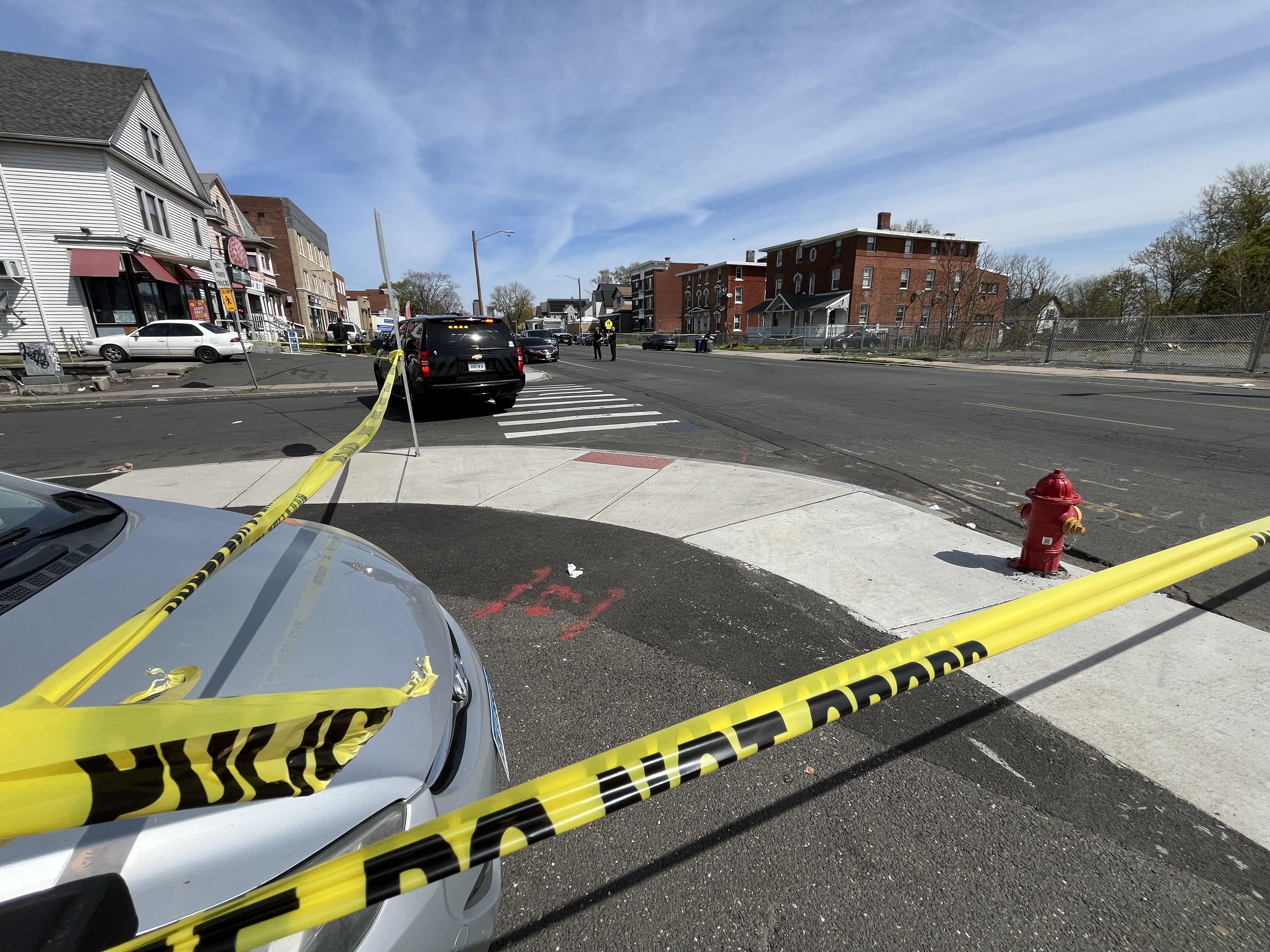
The U.S. Supreme Court ruled Thursday that colleges and universities must stop considering race in admissions, forcing institutions of higher education to look for new ways to achieve diverse student bodies, and Connecticut is reacting to the decision.
In a 6-3 decision split along ideological grounds, the court's conservative majority struck down admissions plans at Harvard and the University of North Carolina, the nation's oldest private and public colleges, respectively. Read more about the decision here.
This is how and some Connecticut colleges, universities and officials are responding to the decision in statements they shared with NBC Connecticut.
Get Connecticut local news, weather forecasts and entertainment stories to your inbox. Sign up for NBC Connecticut newsletters.
UConn
In a statement, UConn President Radenka Maric said the decision will "challenge the ability of UConn, and higher education broadly, to meet America's ongoing commitment to building a more just and equitable society."
"The university and its president do not typically comment on cases before the court or its decisions unless those decisions have a direct impact on UConn. While we still need to thoroughly review the lengthy decision to fully understand its implications, this one unquestionably does impact us – and we are deeply dismayed and disappointed by it," Maric said.
"It is essential to UConn’s mission as a public university that we create and maintain a student body in which people of all races, ethnicities, and backgrounds can thrive. Our great challenge now in the wake of these decisions is continuing to build on that vital mission with the tools we still have available to us," the statement reads.
To read the full statement, click here.
Wesleyan University
Wesleyan University President Michael S. Roth and Amin Abdul-Malik Gonzalez, Vice President and Dean of Admission and Financial Aid, issued a statement to the Wesleyan community about the decision.
“Today’s Supreme Court decision on the consideration of race in college admissions is extremely disappointing. Appealing to a principle of “color-blindness” at odds with history and law, the Court’s conservative majority says 'trust us' while it imposes its will on higher education’s admission policies. Wesleyan remains deeply committed to admitting a class of students that will lead to a diverse learning community on our campus. By using a reductive sense of how race is dealt with in college admissions, the conservative majority of the Supreme Court has challenged the University’s ability to select and enroll a racially diverse class,” Roth and Gonzalez wrote.
See the full statement lower in the story.
Yale University
Yale University President Peter Salovey issued a statement to members of the Yale community, saying he's "deeply troubled" by the decision, and that it's a "detriment to everyone who benefits from the diversity of our campuses."
"As we argued in the amicus (friend-of-the-court) brief that Yale filed in the Harvard and University of North Carolina cases together with several other universities last year, diversity vitally enhances higher education. A student body that is diverse across every dimension, including race, improves academic outcomes for all students, enhances the range of scholarship and teaching on campus, improves critical thinking, and advances the understanding and study of complex topics. Generations of Yale students, alumni, faculty, and staff can attest that Yale’s diverse educational environment has positively contributed to their creativity, adaptability, and leadership," Salovey said.
"Despite my strong disagreement with the Court’s decisions, I am committed to the rule of law. In the coming months, deans of admissions and other university leaders will review Yale’s admissions policies to ensure that Yale College, the Graduate School of Arts and Sciences, and every professional school comply with the law as interpreted by the Supreme Court. Going forward, schools will communicate as needed to their prospective and current students, as well as faculty, staff, and alumni.
The president said Yale Law School will host a panel discussion for members of the community. There, panelists will share their expertise and legal analysis of the court's ruling. You can see the full statement here.
U.S. Senator Richard Blumenthal
“Diversity has helped make our higher education system the best in the world. Racially diverse classrooms benefit all students. With this decision, the Court has dealt a major blow to the fight for equality and racial justice—impeding underrepresented minority students from accessing a world-class education and the American dream. After decades of progress, the Supreme Court has taken a massive step backwards which will harm students of color, exacerbate racial disparities, and sideline the perspectives and lived experiences of millions of Americans.”
“This misguided ruling is just the latest example of the activist conservative Justices’ willingness to overturn settled precedents and discount democratic values in pursuit of their ideological policy agenda. Dissents from Justices Sotomayor and Jackson powerfully demonstrate that race-conscious admissions policies are constitutional and appropriate to advance the guarantee of equality enshrined in the Equal Protection Clause.”
Blumenthal’s office said he led 15 current and former U.S. Senators in an amicus brief supporting Harvard and the University of North Carolina. You can find the brief here.
U.S. Senator Chris Murphy
“The Supreme Court’s decision today is a devastating blow to the decades of progress toward improving racial diversity in higher education and will directly impact students of color – particularly Black, Latino, Native American, and underrepresented Asian populations. This out of touch ruling will have consequences far beyond who gets access to a college education; it all but ensures that future generations of teachers, business executives, doctors, and lawyers, among others, will look less like America than they do today.
“As Justice Jackson wrote in her dissent, ignoring race won’t end racism, ‘No one benefits from ignorance. Although formal race-linked legal barriers are gone, race still matters to the lived experiences of all Americans in innumerable ways, and today’s ruling makes things worse, not better.’ Ending affirmative action will further entrench racial inequality in education and directly undermines the intent of the Fourteenth Amendment. All students benefit from a diverse campus. In the wake of this decision, we have to double down on our efforts to make sure students who continue to face discrimination on the basis of their race have the same educational opportunities as their peers.”
Murphy said he signed a brief of amici curiae in support of the universities in this case.
Gov. Ned Lamont
“This ruling takes our country backward by upending the hard work that has gone into removing barriers to educational advancement. College students learn from one another, and college campuses only benefit from diverse student bodies coming together to learn and grow. In Connecticut, our public and private higher education institutions pride themselves on recruiting students of all backgrounds and perspectives and providing them a high-quality academic experience. They’ve been planning for this day and will taking a holistic approach to the admissions process, including outreach to marginalized and underserved communities, developing a robust, culturally competent curriculum, and ensuring our student body and our staff are representative of all our communities.”
Lt. Gov. Susan Bysiewicz
“Yet again the Supreme Court has chosen dismantle decades of settled law, legislating from behind the bench and effectively derailing years of progress. Racism and discrimination remain rampant in our country, and it is incumbent on us all to promote diversity, inclusion – and equitable access to opportunity.
“Our students benefit from learning among those who come from different backgrounds and experiences, and here in Connecticut we will continue to support efforts that help to promote inclusion and equity at our colleges and universities. Our administration, with our legislative and agency partners, remain committed to leading the way in addressing systemic racism and fighting discrimination at all levels.”
Connecticut Republican Party
"We applaud the Supreme Court in today's decision, which upheld the core American and constitutional values of fairness and equality under the law."
Attorney General William Tong
“The Supreme Court majority got it all wrong – our Constitution’s meaning, our history, and the enduring reality of discrimination in this country,” Tong said in a statement. “The Fourteenth Amendment was written to bring justice to Black Americans after centuries of brutal slavery. It remains a bulwark against discrimination. It doesn’t blind us to race. Instead, it demands that we stay alert to the painful reality of racism. And it leaves private and public colleges and universities free to promote racial and ethnic diversity. Today is a gut punch. But even a hostile Supreme Court cannot bend the arc of the moral universe away from justice.”
“As a Chinese-American, let me just say that efforts to pit Asian-American students against their classmates and friends are deeply hurtful and unhelpful. To the right-wing extremists using families like mine to advance your own hate-based agenda: you do not speak for me. I have benefited throughout my life from programs that recognize the value of diversity. Those opportunities lift us all. Diversity matters. In the workplace, in our communities, in our schools at every grade and level, we all benefit from the perspectives and experiences of those who are different from us. Refusing to acknowledge or address race does not make racism go away.”
U.S. Rep. John Larson
“Today’s Supreme Court decision to roll back affirmative action will negatively impact our nation’s efforts for equality. All students deserve a fair shot at a quality education, regardless of their income, where they grew up, or their racial and ethnic background. Racial discrimination is not an issue of the past, and I remain committed to ensuring equal opportunity in higher education for all students.”
U.S. Rep. Rosa DeLauro
“Once more, the activist conservatives on the Supreme Court have put a giant roadblock in our progress: this country’s achieving equality for all Americans. The consequences of this decision will be immediate – fewer students from disadvantaged backgrounds will have the opportunity and access to get an education that helps them get ahead in life.
Think about the implications of this decision: to deny a young person – who is at a disadvantage because of their skin color, class, gender, or family background – an opportunity in our education. To deny the history of discrimination against women, people of color, and low-income individuals is to deny reality. They were not given an unfair advantage over others. They were given a chance that they could make it in a system that was not designed with them in mind and often, designed in a way that purposefully put them at a disadvantage.
A good education can open doors for young people. Now, I fear that because of this decision, so many just had a door shut in their face. We must work to bring individuals in – to expand access to education, not limit it. I will work with the Biden Administration and colleges and universities to right this wrong.”
Full Statement from Wesleyan Officials
"Today’s Supreme Court decision on the consideration of race in college admissions is extremely disappointing. Appealing to a principle of “color-blindness” at odds with history and law, the Court’s conservative majority says “trust us” while it imposes its will on higher education’s admission policies.
"Wesleyan remains deeply committed to admitting a class of students that will lead to a diverse learning community on our campus. By using a reductive sense of how race is dealt with in college admissions, the conservative majority of the Supreme Court has challenged the University’s ability to select and enroll a racially diverse class.
"The University is encouraged, however, that the Court has recognized the importance of considering race as a factor impacting the lived experience of an applicant. As the Court ruled, 'all parties agree, nothing in this opinion should be construed as prohibiting universities from considering an applicant’s discussion of how race affected his or her life, be it through discrimination, inspiration, or otherwise.'”'
"Wesleyan has never simply looked at the box students checked when considering their racial background. We take an individualized, holistic view of an applicant’s lived experience, through their essays, letters of recommendation, and interactions with our community. Our decision to admit a student is based on diverse facets of the individual’s history, talent, and potential. Applicants’ achievements and promises are carefully considered in the context of their respective schools, communities, and personal circumstances.
"The liberal arts education we offer is stronger because our campus community is built on a dynamic array of socioeconomic, religious, intellectual, geographic, and racial diversity. Asking people to consider ideas and experiences that might challenge their own preconceptions is a crucial step towards helping individuals become engaged citizens leading lives of purpose.
"We are studying the decision to better understand how we can comply with the law while pursuing our mission. We are determined to create a diverse community, and our admission and financial aid teams have been preparing over the last several months to craft policies that will do that. While our ability to do this work has been undermined by today’s ruling, our values are unwavering."



